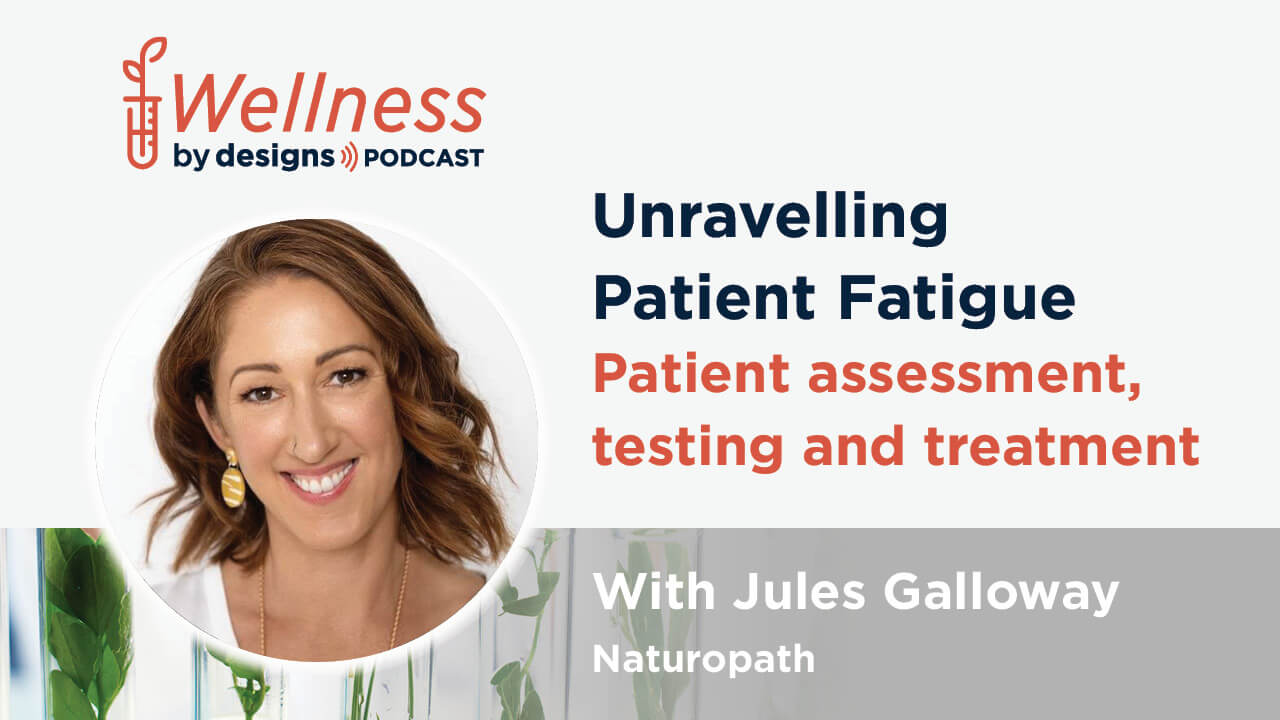

Unravelling Patient Fatigue – With Jules Galloway
In today’s episode, we chat with Naturopath Jules Galloway on the many facets of fatigue and how to approach treatment on a clinical level.
In an ever-increasing, fast-paced life, clinicians are seeing more patients present with enduring fatigue symptoms, and it takes a skilled clinician to discover the causation and to treat this condition effectively.
Jules takes on a journey of how she treats fatigued patients, we discuss patient assessment, what testing is available and how best to treat the fatigued patient.
About Jules Galloway:
Jules is a passionate naturopath, podcaster, speaker and writer, based in sunny Queensland. Jules is one of the coolest, calmest Naturopaths you will ever meet. But she wasn’t always calm. After suffering burnout herself, Jules now specialises in helping fatigued women finds their shine again. Jules’ practice uses a unique blend of cutting edge science, real food, and natural medicines (with a little bit of mindset thrown in!) to help her patients regain their zest for life.
Connect with Jules
website:www.julesgalloway.com
email:hello@julesgalloway.com
Facebook: https://www.facebook.com/JulesGallowayHealth
References from Podcast:
Transcript
Introduction
Andrew: This is “Wellness By Designs,” and I’m your host, Andrew Whitfield-Cook. Today we’re chatting with Jules Galloway, one of the coolest, calmest naturopaths you’ll ever meet. But she wasn’t always that calm. After suffering burnout herself, she now helps fatigued women to find their shine again. Welcome, Jules. How are you?
Jules: I’m so good. Thank you so much for having me on the show.
Andrew: Absolute pleasure. I love the way that we’re all being very professional when we’re normally just running around like chicks with their head cut off. How are you?
Jules: Well, apparently, I’m very calm. I love that you think that I am. I’m great. Welcome to my little office. I’ve got my dog sitting behind me. So if you hear growling or snoring during this episode, please know that it’s not me.
Andrew: No worries. And we’ll talk about your evolution with your clinic and your dispensary in a little while because I do want to touch on that. But first, let’s start about how patients present to you, what they say to you when you go ding. I mean, there must be a myriad of ways in which people present with fatigue.
How the fatigued patient presents
Jules: There is, and I think when I started out really marketing towards women who have fatigue, I was talking a lot about adrenal fatigue, which then developed into talking about adrenal dysfunction as we started to find better words and better terms. And at first, the people who were presenting to me, they really were just tired women who needed some beautiful adrenal support. And that was all well and good. But then, over the years, as I’ve progressed in practice, it seems to have really branched out and feathered out from there. And now I really start to see a lot of people…well, I haven’t started to see, I am seeing a lot of people who have got much more complex cases. And maybe they’ve been to a couple of practitioners already, whether they’re naturopaths, integrative GP’s, doctors, whatever. And it’s not so cut and dry anymore, out there in the land of fatigue.
So maybe it’s got something to do with my progression as a practitioner and my development as a practitioner, and maybe the landscape out there has changed, and people are just getting more complex, or maybe we just know more than we used to. And now we know that there’s so much more to fatigue than we used to, sort of, think. So I think there’s a lot going on out there. And I’ve just, kind of, over the years, gone with the flow, thrown myself into more research and education as much as possible. I kept learning, keep an open mind, looked for new ways to address old problems. And yeah, here I am.
Andrew: But surely, I mean, the old things still happen, you know, like, there’s, what is it, 8% of women have anemia, then you’ve got those people who have got definite celiac. Then you’ve got the non-gluten intolerant people, then you’ve got inflammatory bowel disorder and other autoimmune disorders causing fatigue. And then you’ve got psychiatric causes, whether it be postnatal or whether it be other forms of depression. So there’s so many of the orthodox, let’s call them orthodox, the normal blackbox causes of fatigue, they haven’t gone away. So what’s evolved? Is it your intake? Is it a different…are you seeing different patients now, the more complex ones?
Jules: I think so. And I don’t…I still haven’t figured out whether it’s a reflection on the landscape out there like naturopathy as a whole and who we as a profession are now attracting and serving, or whether it’s one of those things that as you become a more experienced practitioner, you start to attract more and more complex cases. It’s probably a little bit of both. And like you said, you mentioned a few things there, but like, we could add so many more causes of fatigue, like so many more. We can talk about thyroids; we can talk about female hormones; we can talk about mould; we can talk about B12. Like, it’s never-ending, like there are a million rabbit holes that I feel like I go down every day when I see a client when I’m looking at, like, all the possible differentials. And I think we all know as naturopaths that it’s never just one cause either. Like, we’re never looking for one thing, right?
Andrew: So what about your intake then? Like, obviously, this would sift through some obvious causes. Can we go and delve a little bit into what your patients have to go through to get to see you? Do you bat them away and go, “No, you’re not complex enough. You’re not worthy of me.”
The patient intake process
Jules: No. I used to put them through a discovery call before I took them on. But in the last few weeks, I’ve actually just taken the discovery call booking option down off my website just to see whether that makes my life easier or harder. We’ll find out. I was doing a lot of discovery calls, and an average of one in every two people who did a discovery call would come on as a client. But I just think that a lot of the stuff we were chatting about in the discovery call I would have uncovered in initial consult anyway.
So yeah, look, I used to do big long surveys, you know, the ones where they tick all the boxes and mark things out of 10. I’ve done all of that. I found that that’s just my brain doesn’t love those. Like, it’s just my brain is wired a little bit differently to some other people’s, I think sometimes. And I found that sifting through all of that just really wasn’t my happy place. I find that talking to people is my happy place. And interestingly, little known fun fact, I’m actually trained in classical homeopathy, because when I went through the SouthernSchool of Natural Therapies back in the, like, late ’90s, early 2000s…when did I finish, in 2005? So, early 2000s. Back then, we did four years of classical homeopathy.
And even though I don’t practice a lot of homeopathy now, and I don’t go around telling people that I’m trained as a homeopath for various reasons. It’s not the sort of thing that it’s easy to talk about on social media, by the way. But it’s not something that I use a lot in practice. But one of the things that I got from studying it that I do use a lot in practice is the way that we were taught to question the client and the way that we were taught to interact with the client. And a lot of those techniques and skills are things that I use in my naturopathic consultations now.
So, for example, you can get someone to fill out a form. But that doesn’t always tell you everything that’s going on. Or you might need to ask it a different way. Or you might need to ask the question and then just pause and wait for them to fill in the awkward gap. Because when they fill in that awkward gap, sometimes they tell you the thing that was not on any intake form. So yeah, I’ve come kind of full circle because that’s how I was trained, like back at the Southern School in those days, anyone who went through at that time would tell you that we were trained to ask all the questions, and then the forms, and then the…
Andrew: Yes. You were trained by somebody quite unique, though, weren’t you?
Jules: I was trained by a few unique individuals.
Andrew: Rachel. Rachel Arthur was one of your lecturers, right?
Jules: She was. She was my nutrition lecturer for a while there for a short time. Yeah.
Andrew: That’s right. So you know, I was just thinking when you’re talking about how forms didn’t…you know, they suited you in the beginning, and now they don’t. Obviously, that would have something to do with experience. And indeed, that follows my experience as well. I can still remember, and I’m trained as a nurse, but I can still remember when I delved into natural medicine that these, sort of, question-answer intake forms were a boon. But the more experience you gain, and the more you look into it, they don’t tell the full picture. They’re a great starting point. But once you get the experience, you move on. So to me, it’s kind of like what you’re seeing with your patients. So how, you know, it’s sort of my…what is it? Be parallel with the change in intake for the patients. So I’m wondering if, when you’re doing those discovery calls, were you actually finding out these really simple things and going, “Ah, listen, yeah, you need to go there?” You just, “I do the complex cases; you need to go there.” Is that correct?
Jules: Look, yeah, if someone’s not a complex case, I’ll often refer them to one of the other naturopaths at this clinic as well, I’ve got to say. Like, we’ve got different people at different price points as well. And sometimes I simply just say to people, “Maybe you don’t need to spend the big bucks to get the answers that you need, like talk to one of our, you know, slightly more junior people.”
Andrew: But Rachel Arthur has a unique way of questioning. And I’m gathering that you were also lucky enough to access some other brilliant lectures that were able to pause and teach you how to pause so the patient would then divulge more information.
The art of pausing
Jules: Interestingly, one of my homeopathy lecturers actually instructed us or recommended for us to go and sit down and watch Andrew Denton’s “Enough Rope,” you know, the one-on-one interviews that he used to do?
Andrew: Yes.
Jules: And he said, “Just watch what he does.” And it’s that he gets them…first, he makes them feel really comfortable. Like, they’ll have a bit of banter, or a few jokes, or a bit of back and forth, he’ll get them off their guard. So he’ll…because everyone turns up to their interview with Andrew Denton kind of like with the shoulders up and a bit kind of like they’ve got a lot of expectation, and they’re a bit stressed. And so he really, like, gets them to drop their guard. And then he’ll start to chat with them and get some banter happening, but then he’ll start asking the big questions. And he’ll also leave these pauses for them to fill. And when you leave those pauses, if someone is being interviewed, like they’re usually a little bit nervous, or whatever, and they will jump in and fill that gap. And when they jump in and fill that gap, sometimes that is the gold, like the absolute gold is when they go “Oh, and…” then they drop the bomb.
So it’s really cool. Like, you don’t even have to look to other medical practitioners or naturopathic practitioners in order to see good consultation skills, you can look to…you know the old…what’s his name? Parkinson over in the U.K., he did it too. I’m pretty sure that’s kind of where Andrew Denton got his stuff from. And you do see it in other, sort of, one-on-one interviews now as well. But yeah, I remember, like, we were all like, “You want us to go and watch Andrew Denton? What? Why?” But it made perfect sense once…
Andrew: Yeah, he’s brilliant.
Jules: …I started…yeah, once I started using it in practice and realizing like that kind of journey that he goes is on with them, and then he lets them…And they will often say at the end of those interviews, “I said stuff to you that I’ve never said to anyone; I don’t even know how you got me to say that.” So that’s what we want with our clients as well. Like, we still need to go through the process. And those forms are actually really great prompt sheets. So you can have the form sitting there with all the things. Because I remember when I was first in practice, I remember if I didn’t have a prop sheet, I’d get to the end of the consult and be like, “Holy crap. When I went through the reproductive section, I didn’t ask her if she’s got heavy periods or light periods. Oh, crap. And when I went through the digestive section, I didn’t ask if she had reflux or not.” And by that stage, the client’s gone for the day.
So it was like I found that, especially in the first few years of practice, it was really good to have prompt sheets or to have like a…I actually have a form I’ve been…in simple clinic now with all the different sections in it. And it’s like I’m filling out those sections on the screen as I type with the client there. But yeah, I no longer get them to fill out the forms themselves. I want them to tell the story instead.
Andrew: Well, that’s like…Just like to one thing before I go on. And that is another great interviewer with Richard Fidler with “ABC Conversations.”
Jules: Yes, yes. He’s amazing.
Andrew: Can I ask you about when you’re typing in information that takes your focus away from the patient? Do you engage them in what you’re typing? You know, are you a really good typist and so you can just go…? Like, I would find that disconnecting from my patient. How do you cope with that with being present with your patient?
Jules: Most of my clients are Skype. Oh, Skype, what am I saying? That’s so five years ago. Most of my clients…
Andrew: It’s more than five years ago.
Jules: …are Zoom. Zoom.
Andrew: Yeah. It’s COVID-19 time; we’re all Zoom now.
Jules: I know. In these trying times, we use Zoom. Yeah, most of my clients are Zoom. So I’m trained to look at that spot. Where is it? There it is on the computer. So I’m looking at that little hole on the laptop there where the camera is. And yeah, I’m not a great…I’m not great at typing. Like, I make a lot of errors. And sometimes, I go back and fix them up later, rather than trying to fix them up as I go. Eye contact with that spot is key. So you can look down and look up, and look down and lookup. And that’s gonna happen one-on-one with a person in the room as well. And I’ve even been known to say to someone, like if I’m kind of really connecting with them, whether they’re…because you know, people do come and see me in person, just 95% of them are Zoom, right.
So if they’re here in person, or if they’re on Zoom, I will sometimes need to look down to type or to take notes or whatever. But I will say to them, “Just give me a sec; I’m just gonna catch up on my notes here for a second before we move on to the next thing.” And people are fine because that allows them time to like blow their nose, have a sip of water, check their phone to make sure that, you know, the kid hasn’t done something at school. Like, there’s always…like, they might need a breather too. Like, we’re all about, “Oh my God, we’ve got to maintain this connection, and we can’t break this connection with the person,” but they need a break too.
This is a really…especially an initial, and that’s a really intense thing for them, like a lot of my clients cry in initial. So they might need a chance to actually go fishing for a fresh tissue, or blow their nose, or something, or, you know, we all now know that our phones are like a little security blanket for us, right? So if they then wanna check their phone and tell me it’s because they’re expecting the school to call because one of their children has been…you know, something’s happened, like, I know, you know and I know that they could probably go another half hour without checking to see if the school has called. But like, that’s their tiny little moment of recalibration, so I just let them do it.
So I think it’s good to have that a couple of little awkward moments where I’m like, “Yeah, cool. I’m just gonna…give me a second, I’m just gonna catch up on some notes because…”And I’ll make a little joke like, you know, “You think I’d be able to multitask given that I’m a woman, but I’m just…you know, I’ve only had one shot of coffee today,” or something like that. And then I’ll just catch up on my notes; they recalibrate, and then off we go again.
The differential diagnosis
Andrew: It can I actually give you some really good signals of their language as well, like, how are they feeling? You’re speaking about Andrew Denton and that he catches them off guard. Maybe it has something to do with their language of, “Oh, my God, I’m scared here, or I’m trepidatious of what the future might mean,” that sort of thing. But can we drill down a little bit into the detective work that you go through, the differential diagnosis, particularly when you’re talking about hormonal issues, thyroid issues, and indeed, mould, chronic fatigue, those sort of frustrating conditions for both patient and practitioner? Do you have a system where you go remedial to sinister? Or do you go, “Let’s get cancer, chronic fatigue…forgive me, inflammatory bowel disease and really sinister diseases out of the way so that then we can relax?” Which way do you work?
Jules: I don’t think I’ve got a process that’s kind of linear like that. I think I’m constantly adding to the differentials down the bottom and making a list of things for them to check in with their GP about. And I think all of that gets fleshed out in the process. But yeah, I’ve got a little differential section down the bottom, but honestly, I will often have like a little bank of posted notes off to my right here with my pen. Or I’ll have a little notebook. I often have my little notebook here, just off to the right. And I’ll scroll over that without looking at it too much, right. Instead of being like this. Yeah, I will often be making little notes about differentials, about herbs, as we pretty much all do, where you go, “Ah, this person’s really a skullcap person,” or, “They’re a real passionflower person,” o, “Definitely Withania.” But also, like, I’ll be scrolling things over there like you know, “Test for Crohn’s,” or, “Test for thyroid,” or, “Do a Dutch test,” or, yeah, “GI map.”
Like, there’s always…I’m always making those notes, and I’m always considering the most sinister stuff because we do need to consider the most sinister stuff because we need to know whether we need to refer them back to the GP and say, “These are the tests that we would like to get just to make sure that everything’s fine.” But I think, for me, it’s like I said, I think maybe my brain doesn’t quite work in the same way as some other people’s brain. So it’s funny. I’m an under-methylator, and I am very organized. But I’ve had to learn to be organized because it’s actually not how my brain typically functions that I’ve had to learn that when I’m at work, I have a sit down in a chat with my brain. And I’m like, “Okay, brain, I know, this isn’t your natural state. But today, we’re going to do things in this order.”
So yeah, I think as you develop as a practitioner, you get that order happening. And I had a lecturer, again homeopathy…see, I learned so much in homeopathy it wasn’t just about however many thousands of remedies. But yeah, I had a lecturer who said like the first…oh, was it 10 or 20? This is important because I’ve been practising for 15. I think he said the first 20 years of practice; you had to be very organized and do it by the book, but then the next 20, you could do it on instinct. And so, at some point in practice…
Andrew: Ooh.
Jules: Yeah, right. He’s like, “No, you can’t go on instinct until you’ve been…until you’ve done the time.” And so even in…
Andrew: That’s a big goal.
Jules: Yeah. I won’t name names.
Andrew: That’s a big goal.
Jules: I won’t name names.
Andrew: Because, well, you just said before there’s such a Withania person, there’s such a passionate flower person. And sometimes there’s a…you know, I’m not spiritual, right. So I don’t believe there’s a spirit guiding me. But I do believe in the minutiae of cues that we pick up on people, on their behaviour, on their quirks, and mannerisms. And so that might guide your therapy unconsciously. But gee, waiting 20 years to do that?
Jules: Maybe it was 10. But I think it was 20.
Andrew: Please be five.
Jules: It certainly wasn’t five; it was double figures. If I say 10, will we all feel better? Because I’ve been practising 15, which means I’m out the other end. Woo-hoo. But…
Andrew: Well, you know, I can still remember an old naturopath, Maria Forbes…if you’re out there, hi…and she used to…she was one of the first people I knew of who mentored students. And she used to take people on and give them a poem. And if they couldn’t decipher the poem…it’s a famous poem called “Ozymandias,” don’t worry about it. But if they couldn’t get an inkling of what “Ozymandias” was about, she wouldn’t even take them on. And she said, “If you can’t get some idea, not necessarily a clear idea, but if you can’t get some idea within the first five minutes of what’s going on, start again.” And I thought it was a really telling moment, like; I wonder how medicos are taught to think, are taught to diagnose. But anyway, that was her lesson.
Testing and assessments
Can I just ask you, though, with regards to assessments, you mentioned a few assessments, Dutch tests, GI map, a few others, how much do you rely on them? And do you rely on them blindly, or do you rely on them once you have a suspicion that they may give you a clearer picture?
Jules: I rely on functional testing a lot. Definitely a lot. I take the case thoroughly first. Definitely, I think just because we test for something and we find it doesn’t mean we’ve even found the full picture. It’s like if you do a GI map and you find some bacteria that need to be dealt with in the gut, that’s great, but you still don’t know which food intolerances that person has or whether they’ve got hydrogen dominant SIBO, right?
So, I think, like, I have my usual go-to tests, especially for my fatigue people, that I’m always thinking of in the background. And again, they get scrawled on little pieces of paper off to one side as they should. And that’s great, but I think we always need to keep in mind, like I said earlier, that when we’re dealing with fatigue in complex cases, it’s never just one thing. So just because we’ve found something doesn’t mean we’ve found everything; it just means we found something and that something needs to be dealt with. But I think when you practice through those, sort of, functional medicine goggles, as I do, you’re always looking for the thing under the thing, under the thing, that’s behind the thing.
And so functional testing is great. But I never look at those results and go, “That’s it, home and host.” I think we always need to look at the timeline of the person’s illness. Like, when have they never been well since? And is there something that was going on before they got their hormones out of whack, or their bacterial infection in the gut, or before their cortisol went up, or before their thyroid went up? Like, what was going on before all of that that set the scene for those things to happen? Do we need to deal with that as well?
Andrew: Right. So you’ve got the initial, let’s say, insult, and then the needle on the camel…needle on the camel’s back? Needle…no. Straw on the camel’s back.
Jules: Straw.
Andrew: The final insult that that was just…I won’t say catastrophic, but it was the one that created the symptoms as you know them now. Is that what you’re saying? And you go right back to that initial…?
Jules: Yeah, we go right back to the initial insult. But I think the straw on the camel’s back is usually stress. It’s not even…So say if someone presents with chronic fatigue, and then we do a GI map, and we find out they’ve got a gut bug that needs to be eliminated. And we do a thyroid profile, and we find out they’ve got Hashi’s, right? That’s great. But I bet you any money a stressful event pulled the trigger, and that’s what’s led them to book in like that’s the thing that tipped them over the edge. But none of those things are the original insult, are they? Like, the original insult might have happened when they came out of the womb. And you know, they had…like, I’ve had clients that when you question them, it turns out, like, they were in hospital for three days after they were born. And it’s like, “All right, what did they do to you in there? Like, what, did you have antibiotics, like what was going on?”
I’ve had clients who lived in a mouldy house 20 years ago in the U.K. And then on further investigation, it turns out that that was never dealt with, and they’re still carrying that inflammation and that inflammatory response to things. I see a lot of trauma, like a lot of people; when you start to scratch the surface of it, you’ll find out that that initial insult could have been some sort of childhood trauma or something going on in their teenage years or early 20s. Viruses. Yeah. When I’m getting everything into that functional medicine timeline, I’m really looking at a story of how that person ended up where they ended up. And yeah, when you’re dealing with chronic fatigue, you’re going to find lots of pieces that go into that story.
Where do you start with treatment?
Andrew: But you have to offer them some succour at the moment. So do you start off with like a basic nourishment of the…you know, we say the word terrain, and mostly that’s got to do with gut. But then there’s immune system and gut-brain highway and all of that sort of thing. So do you tend to offer some sort of base nourishing treatment or adaptogenic treatment to at least put them on to an even keel while you’re searching further back?
Jules: It depends on the person. They don’t all get the same thing. I’m a naturopath; I know the answer to this one—no one thing for everyone. I’m really careful. I’m really careful with adaptogens. I have to say, I’ve seen a lot of cases of people who’ve got chronic fatigue, and it turns out they’ve had either mould illness or CIRS, whose cortisol was low because of that process in the body that was going on. And then they had been given certain supplements. We know the ones they start with A that have been designed to boost up the adrenals or perhaps tone the adrenals. And they’ve got really stimulating adaptogenic type herbs in there. And people get worse. And they’re like, “Oh, I took this magic supplement. And I felt much, much worse. And I felt more wound up and more sick.”
Cortisol awakening response test
And I went to a conference called the A4M a few years ago with Andrew Heyman. And he was talking a lot about fatigue. And yeah, and he’s worked a lot with Richie Shoemaker in terms of mould stuff. And he showed us these cortisol awakening response tests, and I still get them out and show them to people now. I’ve still got the notes. They’re like 2 meters away from me at all times in the clinic. These cortisol awakening response tests were like these flat lines, like the morning ones were flat, the midday one was flat, the afternoon one was flat, the evening one was flat. Flat, flat, flat, flat. And he asked around the room; he said, like, “If you’re a practitioner, like what is your initial thought when you see that?”
And of course, as a naturopath and herbalist, like your initial response is, “Oh, build the cortisol up, give them things that stimulate them, and licorice and all these things that help to boost the cortisol…because they’re flat, we’ve got to boost them.” And he explained that…
Andrew: We have a nail; we now have to be a hammer.
Jules: Yes. And what he explained to us is that flat response on the cortisol awakening response test is potentially there, we’re not exactly sure why, but it could potentially be like this protective mechanism by the body in response to this major inflammation that’s going on if they’ve got like something like CIRS. And then if you try and get that cortisol up and you succeed, what you’re also doing is putting the accelerator on the inflammation. So then they get more inflamed. And so it’s really…that changed the way that I saw adaptogens. Because yes, some adaptogens won’t raise cortisol, but some might. And it really changed the way that I looked at those sorts of results on tests instead of going, “Oh, my God, we’ve got to boost this person up.” I’d be like, “Right, why? Why? Why is it low? Why is it low? What is really going on here?”
So yeah, that’s definitely…I love my adaptogens. Like, of course, we do; we’re naturopaths. They’re our favourite herbs. But again, looking for the underlying causes, not just giving a herb for a symptom, is like so, so, so important in fatigue. And especially when you get to that point in practice where you’re starting to get the clients who’ve been to other practitioners first. So if they’ve got fatigue, and they’ve been to another practitioner first, I will guarantee you they’ve had adaptogens, and it didn’t work. And like they will come to you still on those adaptogens. And I’ll be like, “Well, is it working?” And they’re like, “I don’t know, but I’m too scared to go off them.” And I’m like, “Well, what’s your energy levels?” And they’re like, “Two out of 10.” And I’m like, “Well, it’s not working.” But they’re literally scared to come off them now just in case it was giving them that 2 out of 10. And they’re worried about dropping to 0 out of 10. So yeah, if they’re coming to you from other practitioners, and they’re tired, they’ve already had those hopes, end of.
Andrew: Gotcha. I’m glad you mentioned Andrew Heyman because he was instrumental in exactly the same way with the cortisol versus infection. There was this whole medical/functional medicine, sort of, era, and it was based on cortisone or cortisol. And they would give patients cortisone. And it always seemed very strange to me, but Andrew explained it perfectly. “If you’ve got something low and you’ve got an infection, and you correct that cortisol thin, you’ve just given a freeway, a free pass for that infection to go rampant without you knowing anything about what it’s doing to the body.” It’s brilliant. Like, the brilliant mind that he had to uncover that. And I guess that’s the…
Jules: That thing, what if that’s the body’s attempt to deal with something bigger that’s going on in the body?
Andrew: I guess it’s one of these lessons that we learn by, as you say, you know, the experience of so many years because you’re so old.
Jules: Terribly old. Terribly old.
Andrew: But on that point, how have your programs evolved over the years? You say your patient intake has changed. Has your approach to even the same…let’s say disorder, has that changed given that we’ve learned more about the meaning of things like cortisol and other hormones? Do you now drill down further into that history at all times? Or do you just know now that means this?
Being the detective practitioner
Jules: I think I’m a drill-it-downer from way back. I will always be a drill-it-downer. I love being the detective. That’s actually the part of the job that I love the most. And that’s why I like taking on complex cases because I’m like, “Come on, bring it on. Like, I wanna pull this apart and find the thing that no one has found yet.” Which is kind of, maybe it’s ego, I don’t know, but I just love the challenge. For me, it’s almost like that thrill of the chase kind of thing of, “All right, let’s go find it.”
In terms of…so yeah, I’ll always be drilling down, I’ll always be looking for the thing under the thing, under the thing, at the bottom of the thing. In terms of, like, programs and, like, what I do with people, like, a lot of the women who come to me in very similar kind of places, with similar habits or similar diets, and there’s a lot of patterns that you start to see. So, for example, like blood sugar issues. So most women with fatigue who come to me, they’re usually aged between, kind of, 35 and 50. And their blood sugar is like out to lunch, right? Like, they’re having hypoglycemia.
Andrew: Forgive the pun.
Jules: They’ve got sugar cravings, like, they are, they’re swinging like this. And so, one of the things I do with nearly everyone is getting them on a diet that is conducive to balancing blood sugar. And I’ve got handouts that I give them and send them and, “This is what your plate looks like, a palm-sized portion of protein.” And like I draw them pictures about why your blood sugar goes up and when the insulin comes out, and then what that means for your energy levels when you’ve got too much insulin coming out. And then you crash and burn, and then you crave sugar, and then off you go again. Like, I even do this in my e-courses. Like, there’s a whole module that is called the Blood Sugar Rollercoaster. And I sit there, and I draw the picture of how their day pans out. If they start the day by eating toast and Vegemite, or toast and jam, or toast and whatever, here you go up, insulin has to come out, mops it up, turns it into fat, stashes around your abdomen, down you go, here’s where you bought them out, that’s about mid-morning, you’re probably gonna eat something sweet, up you go again.
Like, I draw them their whole day. And it looks like a roller coaster. And then we draw them a picture of what the day’s meant to look like. Then I teach them how to eat. So palm-sized portion of protein, we’re not gonna weigh your food because weighing your food sucks. Everyone knows weighing your food sucks like that takes the joy out of the food. So let’s just like have a look at your hand, turn it sideways, feel the thickness. That’s quite a meaty bit of hand, you know. So I’ve got these things that I say to people over and over and over again. And I found myself in clinic saying to people, “Yeah, look at your hand, but now turn it sideways, see how thick it is. That’s how much…that’s the protein food that you should be having. No need to count numbers. Just aim for that. That’s, what, 150 to 200 grams of blah, blah, blah, blah, blah. The other two-thirds of the plate needs to be slow-burning carbohydrates. Let’s talk about what that looks like. Here’s a picture of a plate; I’ll send it to you.”
These are the things that became the core elements of the online programs that I do. Because when I found myself saying the same thing in clinic over, and over, and over again, I’m like, “This needs to be a program. This needs to go out to everyone. Everyone can benefit from this.” Well, close to, right? Because remember, there’s no one size fits all. But some of these things are one size fits good enough, most people. There are a few people out there who won’t.
Andrew: But do you remember the old diet about…the blood sugar balancing diet where it was smaller portions throughout the day in an attempt to not have this? Do you remember that? We always use to…
Jules: No.
Andrew: You know, and it was like, “No, it doesn’t work.” And then, we learned that today’s food affects how you react on an insulin and blood sugar level tomorrow. So there’s all of these things that have evolved and come out and changed the way that we practice.
Jules: And then we worked out that we’ve got these amazing microbiomes. And when we’re in dysbiosis, that’s gonna make that blood sugar rollercoaster swing even more. And if we can just get the microbiome happening really well, then we don’t have to stress so much about whether you had white rice or brown rice that day. So there’s so much, there’s so many layers, and that’s the thing I love about our profession the most is that it is constantly evolving, and we’re constantly learning and that we’ll never stop learning. And I think that’s awesome. But it also means there’s a lot to do. Like, there is a lot of work to do.
Andrew: Well, there’s certainly another podcast to do with you in which we’ll drill down into some of these tests and maybe what you do to help the microbiota of our gut. Jules, thank you so much for taking us into just a little bit of your mind today. But you are very special…
Jules: Yeah, you don’t wanna go too deep in there.
Andrew: But you are a very special and dedicated naturopath and person, and I thank you so much for sharing your wealth of experience today on “Wellness By Designs.”
Jules: Oh, thank you so much for having me and thank you for your kind words. It really means a lot to me.
Andrew: You deserve them. You’ve earned them. This is “Wellness By Designs.” And I’m Andrew Whitfield-Cook.






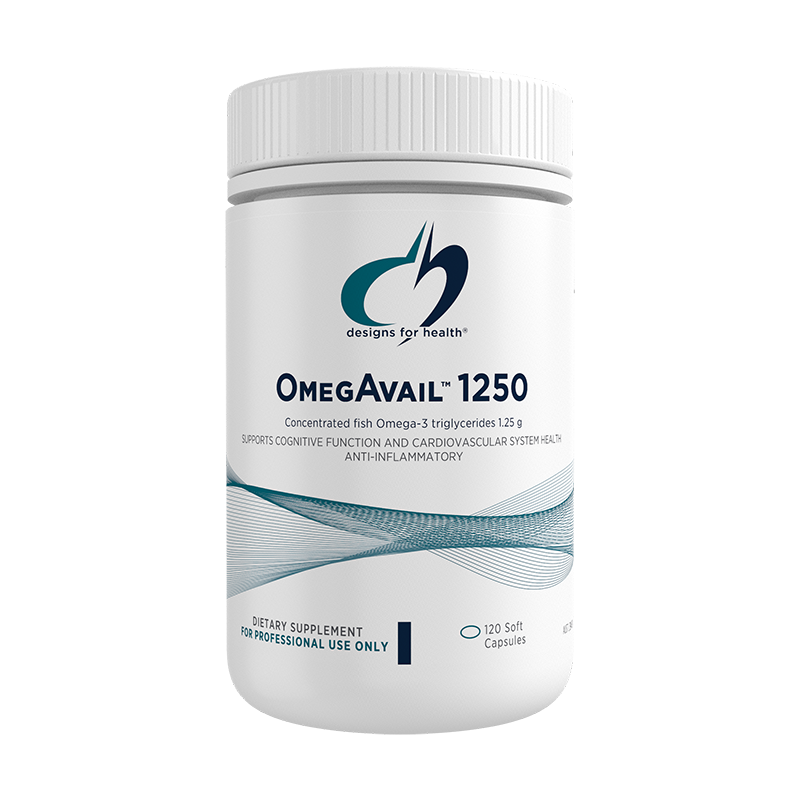
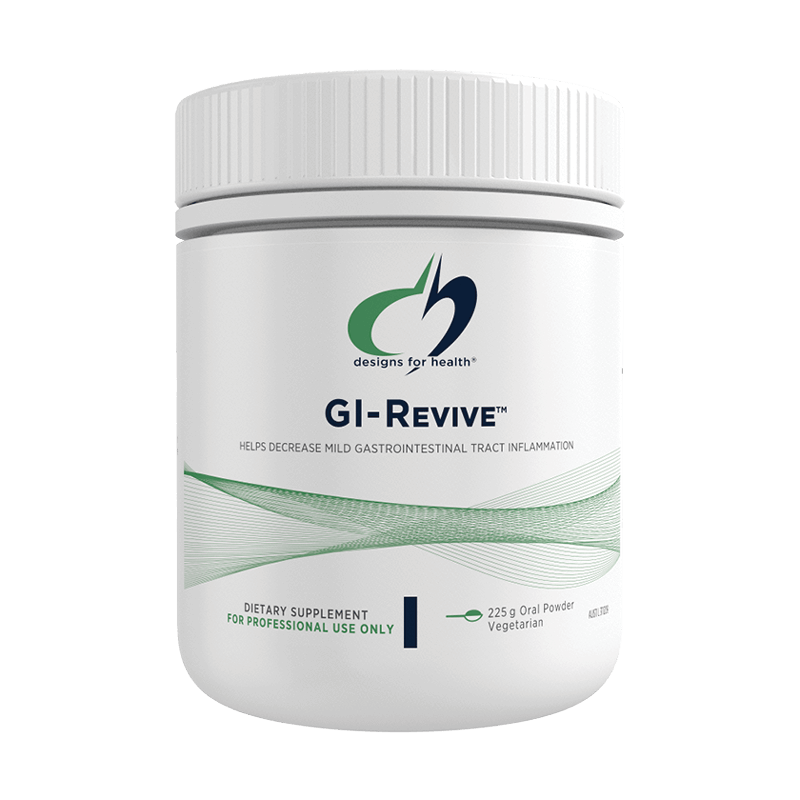
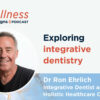 Exploring Integrative Dentistry with Dr Ron Ehrlich
Exploring Integrative Dentistry with Dr Ron Ehrlich Essential Insights into Gallbladder Function and Care with Amie Skilton
Essential Insights into Gallbladder Function and Care with Amie Skilton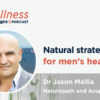 Natural Strategies for Men’s Health with Naturopath Jason Mallia
Natural Strategies for Men’s Health with Naturopath Jason Mallia